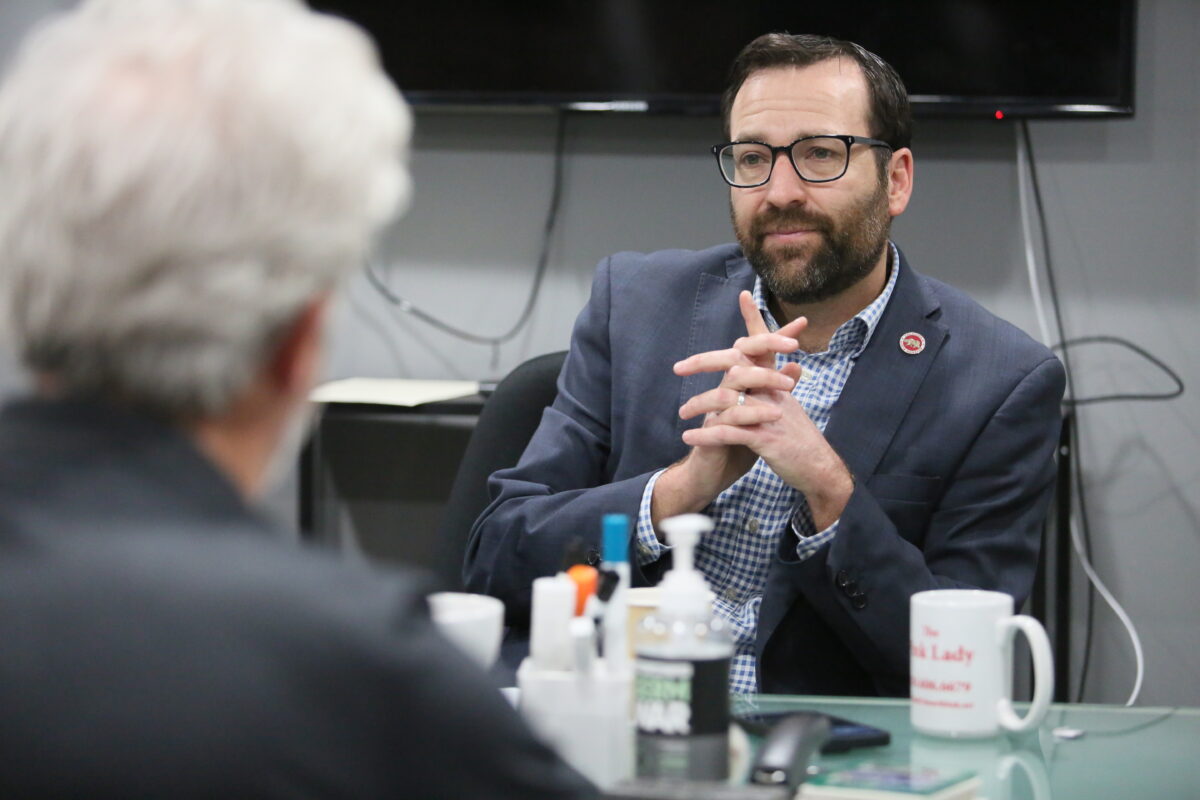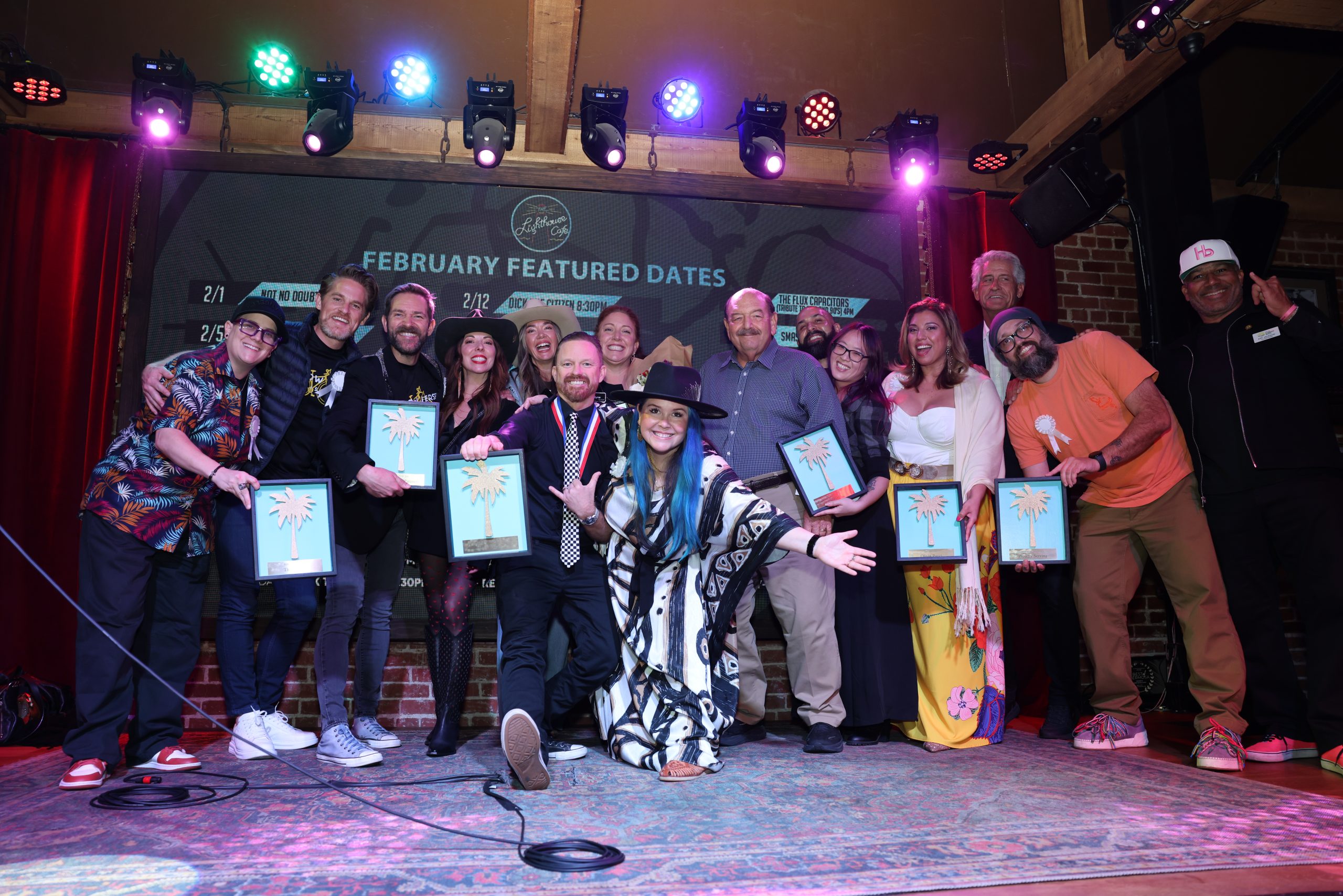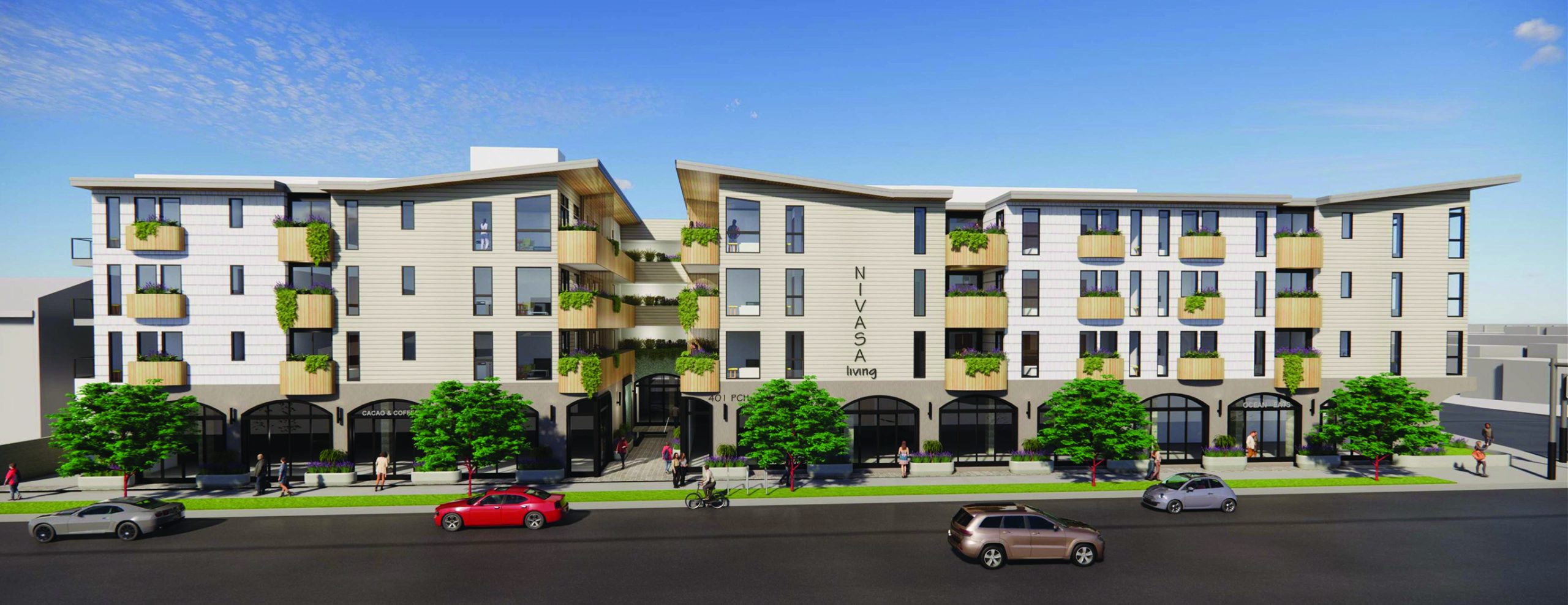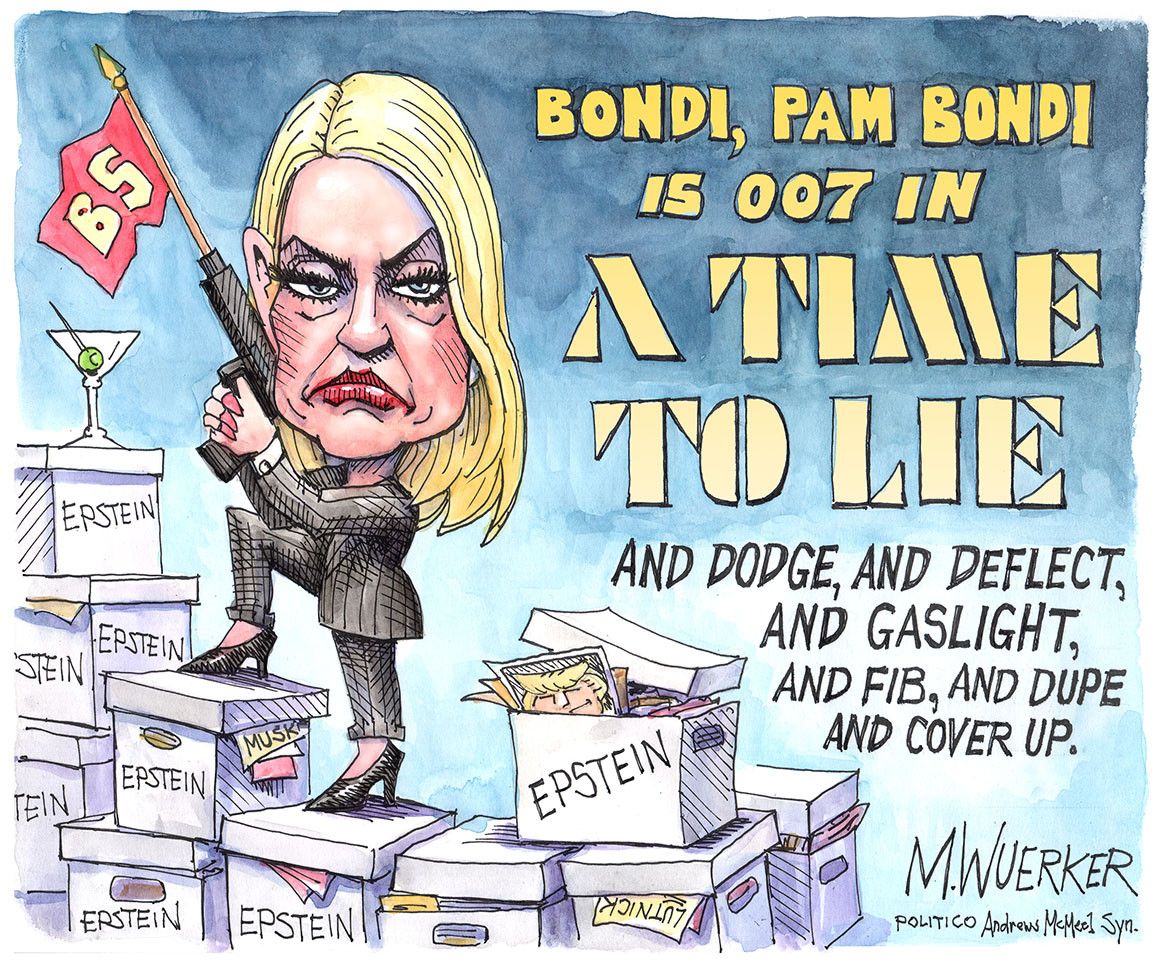State Senator Ben Allen looks to the future as he nears the end of his third and final term representing Beach Cities
by Garth Meyer
Four years at Harvard, two years in Cambridge, two years at Berkeley, and a four hour-dinner with Bill Brand at Captain Kidd’s.
All part of the education of State Senator Ben Allen.
The latter took place during his first campaign to represent the 26th District – stretching from the South Bay up through Allen’s hometown of Santa Monica.
“He was a loquacious guy,” Allen said of Brand, the late mayor of Redondo Beach.
The young Democrat was seeking Brand’s endorsement. Allen came down and the two of them met for dinner, then walked around the Redondo waterfront.
“It was really helpful,” Allen said. “Of the 19 cities I represent, I know my community well, but every city has its own story and dynamics and politics.”
His opponent in the state senate race had more congressional endorsements but Allen had more from local officials.
Allen won, then was twice re-elected, and is now two years away from being termed out.
Known as an environmental advocate, he wrote the bill that became last November’s successful Proposition 4, to fund $10 billion in water, climate, wildfire and other natural resource projects statewide.
What Ben Allen will do next is unclear, but he has had a longstanding interest in politics, dating back to childhood.
“I remember a Time magazine cover of a chariot race between all of the 1984 presidential candidates,” he said, of the year he turned six years old. “I was fascinated by it.”
After public school in Santa Monica, then Harvard and Cal, Allen came home and worked at a law firm, starting right as he was sworn in on the Santa Monica Unified School Board.
“My career was a strange love/hate relationship with the prospect of running for office,” he said.
A history major at Harvard, Allen decided on law school in the wake of the 2004 Presidential election, when John Kerry lost to George W. Bush.
“I wanted to go to law school as a continuation of my work in public policy,” he said.
Later, while on the school board, an opportunity came up. Henry Waxman, a 40-year member of Congress from the Westside, decided not to run for another term in 2014.
“(Then-state senator) Ted Lieu jumped into the Congressional race to replace him, and I had very little time to decide whether to run for Lieu’s seat. If I had more time, maybe I wouldn’t have,” Allen said. “Because the race opened up so late, I thought, it’ll be a few months of my life, and if I don’t win, I’ll just go back to doing what I was doing.”
Before the school board, Allen’s previous campaign was at Santa Monica High School – where he was elected ASB president for his senior year, in 1995-96.
“It’s kind of a scary thing to run. I like a lot of it, both as a kid and now,” he said. “I’ve enjoyed the wonderful mix of substance, people and service. Also, your ability to convince people, there’s a real personal aspect to it, also.”
Aside from student government in his youth, he did theater, became an Eagle Scout, and played (intramural) soccer and synagogue-league basketball.

Ben Allen interview: first session – Oct. 28, 2024
What kind of music do you like?
I love a wide, wide range of music. I would say the Beatles are my overall favorite band. I can probably sing every one of their songs. My first concert was Paul McCartney. I’ll never forget him singing “Maybe I’m Amazed.” But as a Southern California kid growing up in the ‘90s I listened to a lot of hip hop – from Tupac, Snoop, and the Fugees and Tribe Called Quest. My wife has gotten me more into country music, and my folks were oldies and classical music fans, and that rubbed off on me as well. We still have a wonderful family tradition of going to a LA Phil concert every summer at the Hollywood Bowl for my mom’s birthday.
Books?
Again, a wide range. I loved reading “Lord of the Rings,” and I’m actually reading my son the Narnia books now. I really liked “Song of Solomon” and its uplifting finish. Steinbeck’s “East of Eden” was incredible. I’m sad to say that I don’t read as much fiction these days as I would like. My wife tears through a book a week, so I suppose I live a little vicariously through her on the fiction side.
What do you think of the state of the 2024 Presidential campaign?
The trends are not positive. The level of division in our society… Our political norms, how extraordinary it is that Trump has breached so many, any one of which would have (disqualified someone before). Convicted felon, and the list goes on and on. The basic norm-busting is pretty scary. I hope that this is the year it concludes.
The Harris campaign?
Such a strange circumstance… It would have been ideal if Biden bowed out earlier (to allow more time for primaries). I think that would have been a good experience for her to go through, but instead it was zero to 200 miles an hour for her. A very difficult thing she was asked to do. We wish that (the polls) weren’t quite as close but she’s had some headwinds, including some gender bias. Going up against Trump, there are so many things to attack, all the reasons why it shouldn’t be him, while you have to make your own case of why it should be you.
Second interview session – Jan. 27, 2025
How are things in the wake of the fires?
It’s been absolutely awful. So many friends of mine lost their homes… So many policy conundra tied into this; planning, the way cities are allowed to grow, how the insurance system stays intact and strong, it’s a complicated and difficult mix of issues.
What is your assessment of the recovery?
It’s too early to give a good assessment. The pace of cleanup is a frustration; I was at a town hall last night and the bureaucrats can’t give a firm estimate. People want to know, should I sign a six-month lease or a two-year lease? Rough estimates are needed. The sheer amount of cleanup. To go back (sooner than later) is not without risk. For everyone, this is a new experience, unless you work in the emergency management space, but even for them, the scale of it is new.
Under new state mandates for cities to build more housing, preliminary proposals have started to arrive in Manhattan Beach to build more than 1,000 new multi-family units along Rosecrans and Sepulveda Boulevard. What do you think of the fact that projects like this could proceed with little local input?
It’s about striking a balance. I have been supporting some of these laws… the attitude in Sacramento is that if we don’t force it, nothing will get built. The devil’s in the details, as always; is there an opportunity to get meaningful input (from residents). In the South Bay, there isn’t the infrastructure to handle at least some of the growth that’s been proposed.
I don’t think I voted for the bill that created this mechanism. I think it deserves more local input. I’m certainly happy to talk to the city about complying with the law and making the best decisions for their city.
I’m happy to go to bat for Manhattan Beach with the (Senate Housing) committee. I am certainly supportive of more housing; I also think that a number of these state laws have been too prescriptive and don’t allow for enough local input.
[Editor’s note: Sen. Allen abstained from the vote on State Bill 9 and voted no on State Bill 10; two prominent housing bills which passed in 2021].

The 2024 election; how should the Democratic party react?
We have to focus more on real, everyday issues for working people; government services, affordability… I do think we need to be cognizant of costs. Living in America is expensive. And certainly in California. It has to be a priority for us. Other factors… shifting methods of information… vitriolic podcasts… all of which played a role.
The Democratic Party is going to have to get smarter about how to communicate and what it chooses to communicate. To be careful of how we talk about fringe issues that give an impression of more importance/time spent on them versus regular, lunchpail issues.
What did you think of the first week of President Trump’s second term?
He certainly came out slammin’. His agenda, quite frankly, was talked about on the campaign trail. It doesn’t come as a massive surprise. Right now I’m personally focused on getting all that we can for California fires relief. I’m generally happy with his visit to L.A. I think it was very informative for him to see it directly. At the same time, the State of California is pushing back on some of the extreme positions. This is how it’s supposed to work. We come together for disasters, or war, and then we also have a competition over ideas. There’s something healthy about that, actually. We don’t want a system where everyone agrees all of the time.
You wrote a bill that would have created a State Parks endowment, which could be contributed to by public and private entities. What brought this on?
I think the State Parks are an absolute gem, yet when you visit, you always see they need a little T.L.C. I’d love to create more mechanisms for them… Quite frankly, I think the State Parks system lacks some ambition, they should be out front more asking for more help.
What happened to the bill?
It died in the appropriations committee. I never really got an answer why. I’m going to circle back and get more information. With my new assignment [Chairman of Budget Subcommittee No. 2, which covers natural resources, environmental policy, etc.] I think I will focus on this within the traditional budget process now.

What are your thoughts on the future, with the end of your third term on the horizon? Would you run for another office? If so, which? Would you like to represent California in Congress?
I am exploring a number of options, both electoral and not, and will let you know soon. I love public service and service to my community and our state; needless to say, there are many, many ways to be of service.
To the question of what the senator most looks forward to working on in 2025, he noted “the fire has taken up a lot of time,” then talked about film and television tax credits, his broader environmental work, the “materials in the products we’re pushing out into the world,” “chemicals that go into our bodies from products,” utility rates and the implementation of the Proposition 4 money.
Allen is married with two young children, a boy Ezra, 6, and girl Ena, eight months. His wife, Melanie, is an attorney. Allen has one older brother.
Their late father came from England, and the Allen family would spend a month of each summer there.
He would go to London, marvel at the Tube and wonder why we couldn’t have that here.
His father was an avid hiker. The two would often go on Boy Scout trips.
“These were just magical,” Allen said, citing backpacking in the Grand Tetons of Wyoming, canoeing the Snake River.
“I’m hoping my son joins Troop 2 also,” he said.
Allen gets together with his Scout friends almost every year.
All the while, he has remained interested in politics, in California and beyond.
While a State Senator, he watched nearly all of the 2016 presidential debates. At Berkeley, he was a non-voting student member of the Board of Regents, and worked as a summer clerk with the United Nations International Criminal Tribunal for Rwanda.
After Allen earned his Master’s degree in Latin American Studies. He spent four years in Washington, D.C., working for the National Democratic Institute for International Affairs (on its Latin-American team). He then worked for New York Congressman Jose Serrano as communications director.
Allen’s father was on the faculty of the UCLA English Department, while his mother was a public school teacher and one-time chair of the Santa Monica Arts Commission.
Allen was first elected to represent the 26th District. Since redistricting, he speaks for the 24th District, which stretches further north to Agoura Hills. ER








